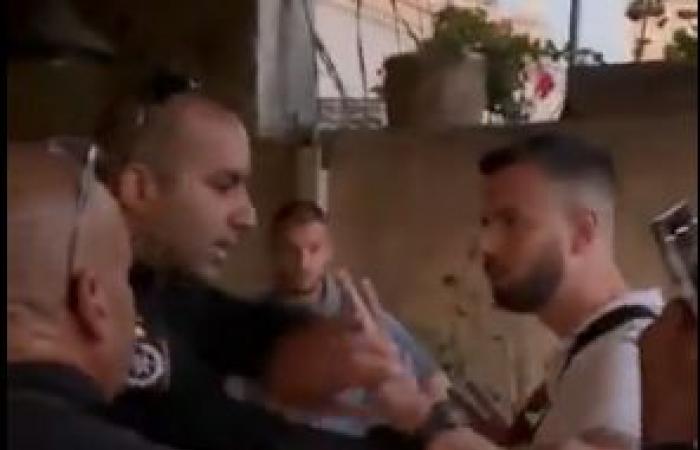Tense diplomacy: Paris condemns the arrest of French diplomats in Israel
The recent visit of French Foreign Minister Jean-Noël Barrot to Jerusalem and Ramallah was marked by notable diplomatic tensions between France and Israel. At the heart of the discord: the brief arrest of two agents of the French consulate general, an act that Paris strongly denounced as an unacceptable attack on its sovereignty.
This trip, initially planned to strengthen bilateral relations, quickly took an unforeseen turn when a security misunderstanding led Israel to intercept the two French diplomats. These were located on the site of the church of Eléona, located on the Mount of Olives, a place that France has managed under a form of special jurisdiction since Ottoman times. The status of this church, although a French enclave, remains complex due to its location in East Jerusalem, a politically sensitive area.
At the origin of the incident, Israeli Shin Bet agents, responsible for ensuring the security of Jean-Noël Barrot's visit, attempted to access the site. France, however, criticized these agents for wanting to enter the church without obtaining prior diplomatic authorization. As a result, the minister decided not to visit the church to avoid compromising this sovereignty issue.
The incident took a new turn after the departure of Jean-Noël Barrot, when two members of French consular staff were briefly arrested by Israeli police. Although they have diplomatic status, the two agents were arrested on the pretext that they had refused to identify themselves and collaborate with security procedures. Quickly released after a check of their identity, the diplomats were detained for around twenty minutes, a duration that France considers unacceptable and unjustified.
The French Ministry of Foreign Affairs reacted firmly, expressing its indignation in a statement, calling these actions “unacceptable”. Paris summoned the Israeli ambassador for explanations, stressing that this incident takes place in a context where France is trying to promote a de-escalation of regional tensions. The ministry thus recalled the importance of respecting diplomatic protocols and the sovereignty of sites under French administration.
On the Israeli side, authorities said the incident had been amplified and assured that security procedures had been followed in accordance with usual standards. Israeli police clarified that the two employees were not recognized as diplomats during the initial incident, which justified their temporary arrest. After confirmation of their status, they were released without delay.
This diplomatic clash highlights the complexity of relations between Israel and France, particularly in geopolitically sensitive areas like East Jerusalem. Although the incident was resolved quickly, it raises questions about the management of security and compliance with diplomatic protocols. The cancellation of Minister Barrot's visit to the Eléona church highlighted the persistent disputes, both in terms of sovereignty and security.
For the moment, this event remains a subject of heated discussions between the two countries, each maintaining its positions. While France insists on respecting its diplomatic prerogatives, Israel defends the need for robust security measures for foreign officials in a tense security context.
Although little information has been communicated on the exact circumstances of this incident, it is part of a series of recurring diplomatic frictions between France and Israel. Indeed, French diplomacy often encounters similar disagreements in Jerusalem, where France claims ownership of a certain number of historical sites, particularly religious ones. For Paris, these places, inherited from the Ottoman era, are considered an extension of French sovereignty, which implies that the Israeli police have no authority there.
This position, already the source of tensions in the past, has caused significant incidents with visiting French presidents, notably Jacques Chirac in 1996 and Emmanuel Macron in 2020. Each time, the point of contention remains the same: the status of these sites in Jerusalem, for which France continues to defend its exclusive right of access and administration, highlighting diplomatic differences and a sensitive question of sovereignty, which continues to mark relations between the two nations.
Jforum.fr
 |
I like this:
I like loading…
The JForum editorial team will automatically remove any anti-Semitic, racist, defamatory or insulting comment, or which contravenes Jewish morality.
- -







